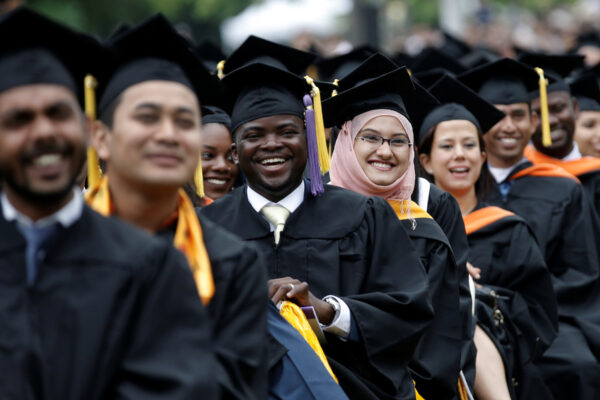Why Is College Enrollment Declining?
Title: Exploring the Exodus From Higher Education
Source: Edge Research, HCM Strategies, and the Bill & Melinda Gates Foundation
A collaborative study between Edge Research, HCM Strategies and the Bill & Melinda Gates Foundation aims to shed light on why an increasing number of people are choosing not to attend college. As enrollment has been declining for several years, data from the survey is intended to understand not only the reasons why individuals are not going to college, but also what supports or resources might help potential learners decide to enroll.
Among the key findings:
- In terms of future plans, 46 percent of respondents indicated they intend to go or return to college, while 41 percent are unsure of their plans. Among those who intend to enroll, most plan to start in six months to a year (31 percent) or one to three years from now (37 percent).
- Speaking to the widening alternative options of education available, nearly half (47 percent) of respondents are taking or have taken courses through YouTube while one-in-four (25 percent) are taking or have taken courses towards a license.
- In terms of perception of value of postsecondary education, survey respondents highlighted the need for return on investment. Among respondents, 44 percent believe on-the-job training is of excellent value to career advancement, compared to a four-year college degree (35 percent) and a two-year college degree (28 percent). Six in 10 respondents (62 percent) had a willingness to take on the debt associated with college if they were guaranteed a good job once they graduated.
- While college affordability continues to be a barrier to enrolling (38 percent), addressing other obstacles individuals face in deciding to go to college is critical. Survey respondents also indicated the stress and/or pressure of college (27 percent) and lack of clarity about their field of study and career path (25 percent) have also been reasons why they have not yet gone to college or completed a degree program.
- To address barriers, respondents indicated what supports would be most helpful to individuals as they complete their degree. Some of these include flexibility of programs to fit life obligations (76 percent), financial aid advisors (75 percent), job counselors (73 percent), opportunities to get hands-on experience (72 percent), and free technology (70 percent).
The brief concludes by breaking down the survey respondents into four categories and offering recommendations on how to influence each group to consider continuing their educations:
- Individuals focused on the return on investment of a college degree (35 percent): Connect them with financial aid and career advising resources to help them get the most out of their experience.
- Individuals who report the most success with their current life situation (29 percent): Help them better understand the value of obtaining a degree.
- Individuals who see the value of a degree but are conscious of its costs (18 percent): Provide program flexibility and connect them to resources that help alleviate the stress of debt.
- Individuals who do not believe college is for them (19 percent): Help them to see the value of postsecondary education and instill confidence in their abilities.
For more information on the survey findings, click here.
—Danielle Melidona
For more information on the survey findings, click here. —Danielle
If you have any questions or comments about this blog post, please contact us.


